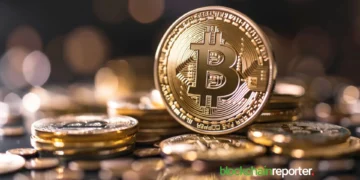South Korea, a nation celebrated for its technologically advanced society, is once again on the brink of creating history. The South Korean National Assembly has passed its first-ever Virtual Asset Act, aiming to implement this groundbreaking legislation by the mid of 2024. As South Korea has always been a pacesetter in digital technology, this move is seen as a decisive stride in global cryptocurrency regulations.
Virtual Asset User Protection Integrates 19 Crypto-Related Bills
South Korea’s Virtual Asset Act primarily aims to bring transparency, security, and legality to virtual asset transactions, which have seen tremendous growth and widespread popularity, yet still exist within a somewhat grey area of law and regulation.
On June 30th, the South Korean National Assembly passed the “Act on the Protection of Virtual Asset Users, etc.,” more commonly referred to as the “Virtual Asset Act.” This legislation is designed to safeguard users in the virtual asset market and regulate unfair trade practices, marking a significant stride in the country’s digital financial sector.
Just over a year following the collapse of tokens by South Korean entrepreneur Do Kwon — an event that amplified a $2 trillion meltdown in the crypto market — South Korea has sanctioned its inaugural independent digital asset bill aimed at augmenting investor protection.
After a prolonged delay, the Parliament greenlighted the Virtual Asset User Protection Act on Friday. This comprehensive legislation amalgamates 19 crypto-centric bills. It provides a legal definition for digital assets and prescribes penalties for violations such as insider trading, market manipulation, and unfair trading practices.
FSC Gains The Power To Oversee Crypto Operations
The newly passed legislation empowers the Financial Services Commission with regulatory oversight over cryptocurrency operators and asset custodians. Additionally, it grants the Bank of Korea the authority to investigate such platforms. The act stipulates requirements for insurance coverage, reserve funds, and essential record-keeping. The regulations apply to assets like Bitcoin while existing securities are governed by current capital markets law.
To safeguard user assets, the new legislation mandates specific guidelines that virtual asset operators must adhere to. Primarily, operators are required to separate user deposits connected to the trading and brokerage of virtual assets from their own property. This segregation will be achieved through depositing or entrusting the assets separately.
Operators are obliged to hold actual virtual assets of the same type and quantity consigned by users, with a portion mandated by Presidential Decree to be stored separately from the internet in a ‘cold wallet.’ To mitigate accidents such as hacking or computer failure, operators must ensure coverage through insurance, mutual aid, or the accumulation of reserves. Additionally, transaction records must be maintained for 15 years for traceability and verification of virtual asset transactions.
As for regulating unfair trade practices, the Act takes a page from capital market regulations. The use of undisclosed material information, market price manipulation, and fraudulent and unfair trade practices, such as misrepresentation or omission of important matters, are all prohibited. Transactions involving self-issued virtual assets, which pose a high risk of unfair trade, have been restricted.
Furthermore, operators cannot arbitrarily obstruct deposits and withdrawals without justified reasons. They are also required to monitor irregular transactions, like those with abnormal price and trading volume fluctuations, and implement measures to protect users.
The new law strengthens law enforcement, granting financial authorities explicit powers to supervise and penalize virtual asset businesses. It sets penalties for unfair trade practices, including imprisonment or substantial fines.
Lee Suh Ryoung, Chief Secretary General of the Korea Blockchain Enterprise Promotion Association in Seoul, reacted to the new legislation by saying, “We applaud the government’s efforts to instill order.” However, he expressed concerns that the law might stifle the industry rather than nurture it, observing, “The legislation still seems rooted in traditional finance perspectives when it comes to crypto regulation.”
Statistics from CCData indicate a significant drop in South Korea’s monthly spot crypto trading volume, plunging from nearly $200 billion two years ago to roughly $38 billion in April. Despite the decline, the nation continues to be recognized for its episodic frenzies around virtual assets.























